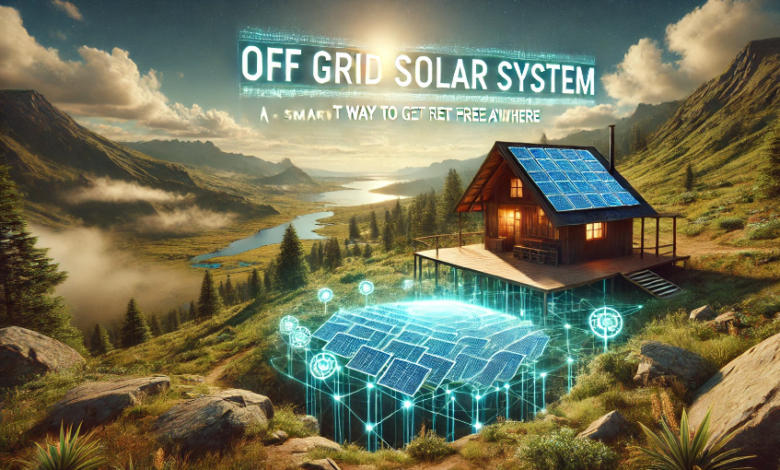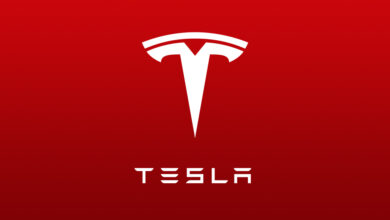Off Grid Solar System: A Smart Way to Get Free Energy Anywhere

Table of Contents
An off grid solar system is a great way to generate electricity without depending on power companies. It works by using sunlight to produce energy, which is stored in batteries for later use. This means you can have electricity even in remote places where power lines don’t reach.
Many people choose an off grid solar system because it gives them energy freedom. No more power cuts or monthly electricity bills! Plus, it helps protect the environment by using clean, renewable energy. Whether you live in the countryside, a cabin, or want backup power, this system is a smart and reliable choice.
What is an Off Grid Solar System and How Does It Work?
An off grid solar system is a way to produce electricity without needing power from the main grid. It uses solar panels to capture sunlight and turn it into energy. This energy is then stored in batteries for later use.
People use an off grid solar system when they live in remote areas or want to be independent from energy companies. This system helps them have power at all times, even during blackouts or bad weather. It works great for homes, cabins, and farms where there are no power lines.
This system includes solar panels, batteries, a charge controller, and an inverter. The charge controller manages power flow, while the inverter changes stored energy into electricity for home appliances. With the right setup, it can power everything from lights to refrigerators.
Off Grid vs. Grid-Tied Solar System: Which One is Better for You?
A grid-tied solar system connects to the main power grid. It allows you to use solar energy when the sun is shining and switch to grid power when needed. People in cities or places with reliable power often prefer this setup.
An off grid solar system is different because it does not rely on the power grid. It is best for people in remote locations or those who want full energy independence. This system is great if you want to avoid power cuts or high electricity bills.
Choosing between these systems depends on your location, budget, and energy needs. If you want a backup during outages, a grid-tied system is a good choice. If you want full control over your power, go off-grid.
Benefits of an Off Grid Solar System: More Than Just Free Energy

An off grid solar system gives you energy freedom. You no longer have to worry about power outages or high electricity bills. Once installed, you get free energy from the sun every day.
This system is also great for the environment. It reduces your carbon footprint by using clean, renewable energy. Unlike fuel-powered generators, it does not release harmful gases into the air.
Another big benefit is cost savings. While the setup costs money, you save a lot in the long run. There are no monthly power bills, and maintenance costs are low. Over time, the system pays for itself.
Key Parts of an Off Grid Solar System: What You Need to Get Started
An off grid solar system has several important parts. These parts work together to provide reliable electricity for your home.
- Solar Panels: These collect sunlight and turn it into energy.
- Batteries: Store excess energy for use at night or on cloudy days.
- Charge Controller: Controls the flow of power to prevent overcharging.
- Inverter: Converts stored energy into usable electricity.
Choosing the right equipment is important. The size of the system depends on your energy needs. More appliances require bigger batteries and more solar panels.
How to Choose the Right Off Grid Solar System for Your Home
Picking the right system depends on how much energy you use. Start by listing all the appliances you need to power. Add up their wattage and how many hours they run each day.
Next, check how much sunlight your location gets. Places with more sunlight need fewer panels, while cloudy areas require extra ones. You also need good batteries to store enough energy for nighttime use.
Finally, consider your budget. A bigger system costs more but provides better power security. Look for government rebates and incentives to reduce costs. With the right choices, your system will work efficiently for years.
The Cost of an Off Grid Solar System: Is It Worth the Investment?
Setting up an off grid solar system requires an upfront investment. You need to buy solar panels, batteries, and other equipment. Installation costs can also add to the total price.
The good news is that this system helps you save money over time. There are no monthly electricity bills, and maintenance costs are low. Many governments offer rebates or tax credits for switching to solar.
On average, an off-grid system can cost between $45,000 and $65,000, depending on size and quality. While this may seem high, the savings on power bills and the security of always having electricity make it a good investment.
Installation Tips for an Off Grid Solar System: Do It Right the First Time

Installing an off grid solar system requires careful planning. A good setup ensures the system runs efficiently and lasts a long time.
- Pick the right location: Solar panels need direct sunlight for the best performance.
- Use quality batteries: The better the battery, the longer your system will last.
- Hire a professional: Experts can help install everything correctly and safely.
- Plan for extra capacity: A slightly bigger system prevents power shortages in bad weather.
With the right setup, your system will work smoothly for many years.
Best Batteries for an Off Grid Solar System: What to Know Before Buying
Batteries are the most important part of an off grid solar system. They store energy for nighttime and cloudy days. Choosing the right battery ensures your system works well.
Types of Batteries:
- Lead-Acid Batteries: Affordable but need regular maintenance.
- Lithium-Ion Batteries: Expensive but last longer and require less maintenance.
- Flow Batteries: Best for large systems, but costly.
What to Consider When Buying:
- Capacity: Pick a battery that can store enough energy for your needs.
- Lifespan: Some batteries last 5 years, while others last 15 years.
- Cost vs. Value: A cheap battery may not last long, so invest in quality.
Common Problems with an Off Grid Solar System and How to Fix Them
Even a good off grid solar system can have problems. Knowing the common issues can help you fix them quickly.
Common Problems:
- Battery Drain: If the battery runs out too fast, it may be too small for your needs.
- Low Solar Power: Dirty panels or bad weather can reduce power production.
- Wiring Issues: Loose or broken wires can stop the system from working.
Solutions:
- Upgrade your battery: A bigger battery can store more power for nighttime.
- Clean your panels: Dust and dirt block sunlight, so clean them regularly.
- Check the wiring: Inspect and fix any loose or damaged connections.
Future of Off Grid Solar Systems: Why They Are Becoming More Popular

More people are choosing an off grid solar system because energy prices are rising. With better technology, solar panels and batteries are becoming cheaper and more efficient.
Many governments are also supporting off-grid solutions. They offer tax credits, rebates, and grants to encourage people to switch to solar power. This makes it easier for more households to go off-grid.
In the future, we can expect even better batteries and smarter systems. With solar energy getting cheaper and more reliable, more people will embrace off-grid living. It is a smart and sustainable choice for a better future.
Conclusion
An off grid solar system is a great way to get free and reliable energy anywhere. It helps people live without depending on the main power grid. With solar panels, batteries, and other important parts, this system can provide power even in remote places. It is a smart choice for saving money and protecting the environment.
More people are choosing an off grid solar system because it offers energy freedom. It may cost money at first, but it saves a lot in the long run. With new technology, these systems are getting better and more affordable. Going off-grid is a step toward a cleaner and greener future.
FAQs
Q: What is an off grid solar system?
A: An off grid solar system is a solar power setup that works without the main electricity grid. It uses solar panels, batteries, and an inverter to provide energy anytime.
Q: How much does an off grid solar system cost?
A: The cost depends on the system size, but it usually ranges from $45,000 to $65,000. Prices vary based on battery type, solar panel quality, and installation fees.
Q: Can an off grid solar system power a whole house?
A: Yes, if it is designed correctly. A large system with enough solar panels and batteries can power all home appliances, including lights, refrigerators, and heaters.
Q: How long do the batteries last in an off grid solar system?
A: Battery life depends on the type. Lead-acid batteries last around 5-7 years, while lithium-ion batteries can last 10-15 years with proper maintenance.
Q: Is an off grid solar system good for the environment?
A: Yes! It uses clean, renewable energy from the sun and reduces carbon emissions. Unlike fuel generators, it does not pollute the air.




